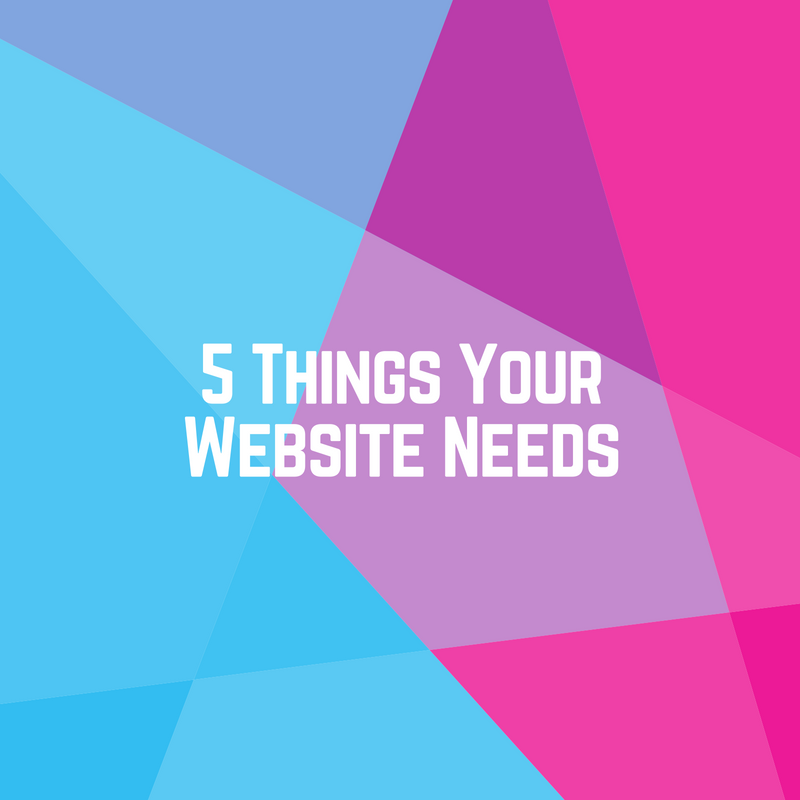
Now that you've determined the goal of your website it's time to begin designing it. There are 5 things every good website should have.
1. An easy to spell and understand web address
Choosing the right web address is an important part of getting found online. If you choose a web address that's hard to spell, difficult to sound out, or too long to remember people won't be likely to find you online. After all when you enter a web address into your browser it's got to be spot on. Even one character off and you could end up at another website or staring at an error message that says "Webpage Not Found."
When at all possible I recommend choosing a domain name that ends in .com as your web address. Although there are now thousands of domain extensions .com is still the most prevelant. It's what people are used to entering by habit.
The only problem is that most of the good .com domain names have already been registered. There's a good chance the one you want to use belongs to someone else. If that's the case you may want to consider contacting them and asking to purchase from them. You'll pay a premium but a good amount of the time it's worth it. Pricing for domain names is farily ambiguous, so don't be afraid to bid low and work your way up.
When choosing a web address you also want to find something short, easy to spell, easy to remember, and preferrably has something to do with your business. Of course your company name is great choice, but as mentioned above that may be difficult to get.
2. A clear and consices headline.
Studies show when people come to your website they'll scan the page for about four seconds. If they don't see something on that page indicating they've come to the right place, they hit the back button. Often times never returning to your site again.
You can circumvent this probelm by putting a clear and concise headline at the top of your home page. The headline should some up in one or two sentences what your website is all about. It should be in a large, readable font, just like a newspaper headline.
3. A strong call to action.
If people like what they see, they're going to wonder what they should do next. Don't make it difficult, tell them what to do. This is when it helps to know the goal of your site. Ask yourself, if someone likes everything they see on your website, what do you want them to do next? Do you want them to click a buy button, fill out a form, call you on the phone. Whatever the action you want people to take after scanning your website be sure to make that front and center, likely below your headline.
4. Fast loading pages.
Like I mentioned earlier, studeis suggest people will scan your page for about four seconds before they hit the back button. The same studies show people will only give about five seconds for your page to load. The only thing worse than someone hitting the back button is when your page is never seen at all. And that's exactly what will happen if your pages don't load quickly.
The speed at which your pages load is affected by numerous factors. Some of which will be out of your control. For example, if someone has a slow internet connection. However there are number of factors that are in your control. You should be taking them into consideration when creating your site.
The number of images on your pages, the size of the images, the number of total elements on yoru page, the servers you're setup on, where those servers reside, they all affect how quickly your pages will load. In general you should use web optimized images and use them somewhat sparseley. Of course this depends on the type of business you're in. For example if you're a photographer and selling your services relies on the quality of an image you want to allow for long load times.
5. A way to capture a contact data.
The biggest mistake people make when it comes to their website is the failure to capture data when people come to their site. When people visit your website for the first time they're probably not going to remember your web address, and it's likely they won't remember what you do. If you fail to capture any contact data you're not going to have anyway of reminding them.
Don't let people leave your website empty handed. Capture lead data in a form so you can follow up. There's a ton of ways you can do this but the best way is to ask for an email address. Not everyone is going to be cool with just giving you their contact data. So offer them something of value in exchange for the information. It can be a discount, a free trial, lesson, a consultation, use your imagination. Ideally the thing you offer them shouldn't cost you too much, but it should be of great value to them. And remember, the more information you ask for the more value you should offering them in return.
Once you've catpured contact data on your website you can follow up. You can send them a drip email campaign, where they get a different email every few days elaborating on your product or service, and you can also send broadcast emails. Those are perfect for sending special offers, promos, and discounts to your entire list.